*NURSING > DISCUSSION POST > NSG6005 Week 9 Discussion Post with relevant points (All)
NSG6005 Week 9 Discussion Post with relevant points
Document Content and Description Below
NSG6005 Week 9 Discussion Post Angela is a 54-year-old married woman with three adult children. She has been the office manager of a small law firm for 20 years and has enjoyed her work until this p... ast year. She has rheumatoid arthritis with minimal impairment that has been managed well with NSAIDs. She has been taking conjugated estrogens for 8 years and decided to stop taking them because of her concern of their risks without sufficient medical benefit. She has tolerated the discontinuation without difficulty. Assessment: At her annual medical checkup appointment, she told her primary care provider that she seemed to be tired all the time, and she was gaining weight because she had no interest in her usual exercise activities and had been overeating, not from appetite but out of boredom. She denied that she and her husband have had marital difficulties beyond the ordinary and she was pleased with the achievements of her children. She noticed that she has difficulty falling asleep at night and awakens around 4 a.m. most mornings without her alarm and cannot go back to sleep even though she still feels tired. She finds little joy in her life but cannot pinpoint any particular concern. Although she denies suicidal feelings, she does not feel that there is meaning to her life: “My husband and kids would go on fine if I died and probably wouldn’t miss me that much.” The primary care provider asks Angela to fill out a Beck’s Depression Scale, which indicated she has moderate depression. As we know ”Depression is one of the most common conditions treated in primary care and nearly 10% of all primary care office visits are depression related” and one thing we also know based on reports and research is that, “Depression in primary care is under detected, underdiagnosed, and undertreated” (Jong, Berg, Tobi, & Berg, 2003, p. 594). Effective management of depression in primary care requires a number of steps: detection and diagnosis, patient education and engagement in treatment, initiation of evidence-based pharmacotherapy or psychotherapy, close follow-up focusing on treatment adherence, treatment effectiveness, and treatment side effects (Patel et al., 2016, p. 106).Treatment should be considered in 3 phases: an acute treatment phase to achieve remission of symptoms; a continuation phase to prevent recurrence of the same episode of illness (relapse); and a maintenance (prophylaxis) phase to prevent future episodes (recurrence) (Patel et al., 2016, p. 106). Wellbutrin has a unique pharmacology, inhibiting the reuptake of noradrenaline and dopamine, potentially providing pharmacological augmentation to more common antidepressants such as selective serotonergic reuptake inhibitors (SSRIs) (Woo & Robinson, 2016).1. What medication would you first prescribe to this patient? An SSRI would be my initial treatment however SSRI’s can interact with NSAIDs by causing potential GI ulcers and GI bleeds, I would avoid an SSRI because Angela is taking for her rheumatoid arthritis (Woo & Robinson, 2016). These GI symptoms may not occur at all however In Dutch pharmacies the prescription medication of all patients is carefully monitored, and warnings about possible adverse effects, contraindications, and interactions are consequently generated (Jong, Berg, Tobi, & Berg, 2003, p. 593) So for this reason I would steer clear of SSRI’s. Angela would start on duloxetine (Cymbalta). I would start her on 20mg/day and increase it to 60mg/day in 20mg increments every 4 days. 2. She comes back in 2 weeks and states she has not noticed and change in her mood since starting on the medication. What would be your response? I would educate her that Wellbutrin therapy as a first line treatment starts out as with any other medication as the first medicatrion in the “trial” trying to find what will work best, I would educate her that we would need to give the Wellbutrin 6 weeks to see it’s optimal effect(Patel et al., 2016, p. 107). This is what is recommended before considering a medication change. I would also inquire about her depressive symptoms she was having previously and ensure they are not worse or progressing into a deeper level. I would assess if there are any additional risks of increased depression and assess any suicidal thoughts with the initiation of the Wellbutrin therapy. If things are not better but not worse, then I would recommend continuing to take the medication and monitor the results closely. I would also recommend she utilize CBT in addition to medications to aid in ways to cope in more healthy ways while waiting for the medication to kick in. I would also suggest small groups/counseling for the husband and children as well, so they are educated on how to best support Angela in her diagnosis. Iwould make sure her husband knew the symptoms of worsening depression and to monitor for any suicidal tendencies. 3. What are the possible problems with the medication you prescribed? It would be imperative to monitor liver therapy while using Duloxetine because it can negatively affect the liver. Liver studies should be done regularly and make sure education about the importance of having lab values drawn and the compliance of regular checkups as well and ensure her husband is aware as well for increased compliance. Other side effects include anxiety so therefore we need to make sure she knows to expect it and educate her to keep track of symptoms of depression and anxiety in a log so she can look back and track trends and they can be reviewed on her follow up appointments. Additionally, somnolence, fatigue, decreased appetite, hallucinations, agitation, headache, and aggression are other side effects or issues we need to monitor Angela for as well (Skidmore-Roth, 2013). 4. How long should you continue the treatment regimen? If Wellbutrin is effective and controls, her depressive symptoms and increases her quality of life then I would keep Angela on this medication indefinitely. According to the National Alliance on Mental Illness there has been no known instances of harm from long-term use of duloxetine, so therefore this would be a medication I would keep her on while maintaining her labs and monitoring for any adverse effects (NAMI, 2018).References NAMI. (2018). Duloxetine (Cymbalta). Retrieved August 3, 2019, from https://www.nami.org/Learn-More/Treatment/Mental-Health-Medications/Duloxetine- (Cymbalta) Skidmore-Roth, L. (2013). Mosbys 2013 nursing drug reference (26th ed.). St. Louis, MO: Mosby. Woo, T. M., & Robinson, M. V. (2016). Pharmacotherapeutics for advance practice nurse prescribers. Retrieved from https://digitalbookshelf.southuniversity.edu/#/books/undefined/ less Jong, J. C., Berg, P. B., Tobi, H., & Berg, L. T. (2003). Combined use of SSRIs and NSAIDs increases the risk of gastrointestinal adverse effects. British Journal of Clinical Pharmacology, 55, 591-595. https://doi.org/doi: 10.1046/j.0306-5251.2002.01770.x TEST PAPER FOR SCHOOL 1 Patel, K., Allen, S., Haque, M. N., Angelescu, I., Baumeiste, D., & Tracy, D. K. (2016). Bupropion: a systematic review and meta-analysis of effectiveness as an antidepressant. Therapeutic Advances in Psychopharmacology, 6, 99-144. https://doi.org/doi: 10.1177/2045125316629071 [Show More]
Last updated: 1 year ago
Preview 1 out of 4 pages
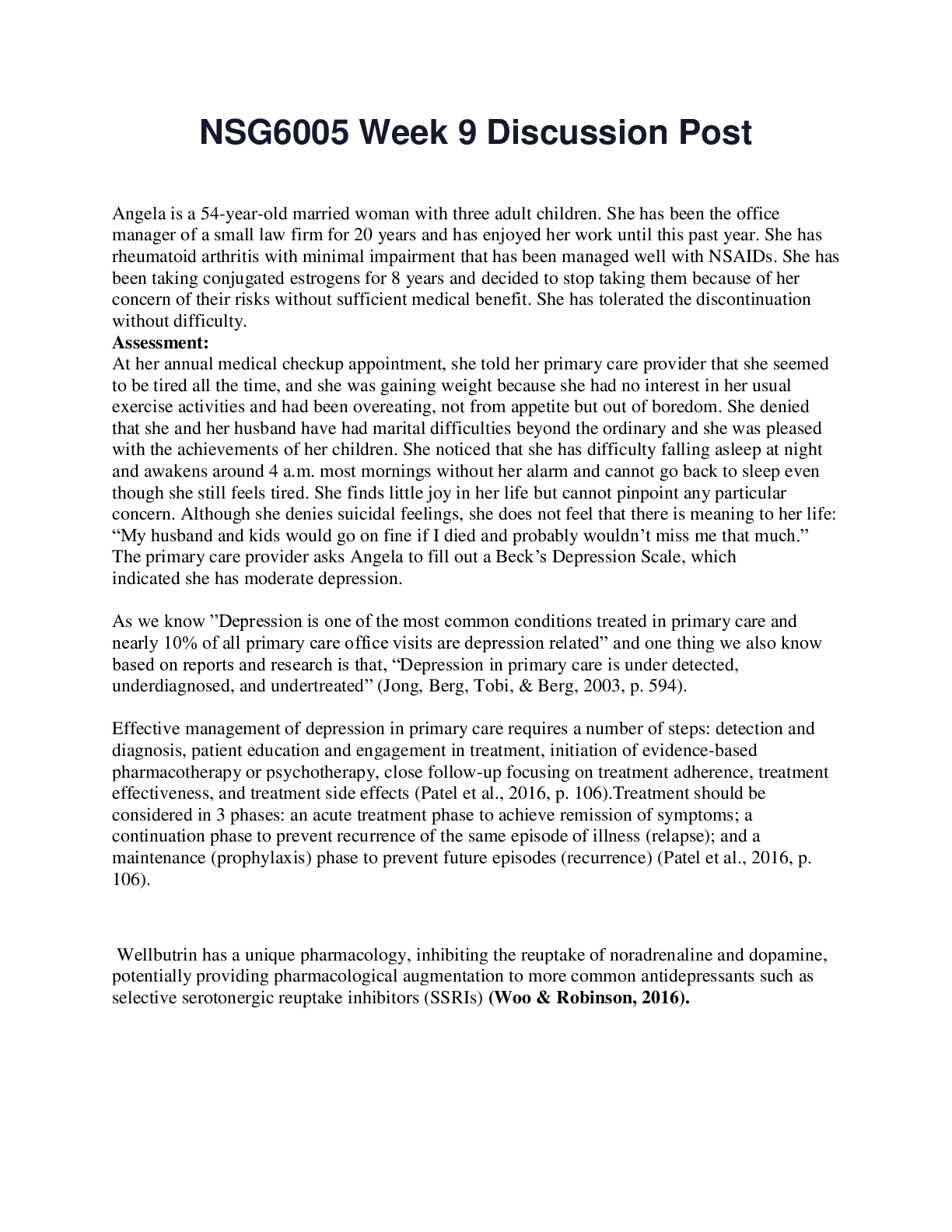
Reviews( 0 )
Document information
Connected school, study & course
About the document
Uploaded On
Jan 19, 2021
Number of pages
4
Written in
Additional information
This document has been written for:
Uploaded
Jan 19, 2021
Downloads
0
Views
138


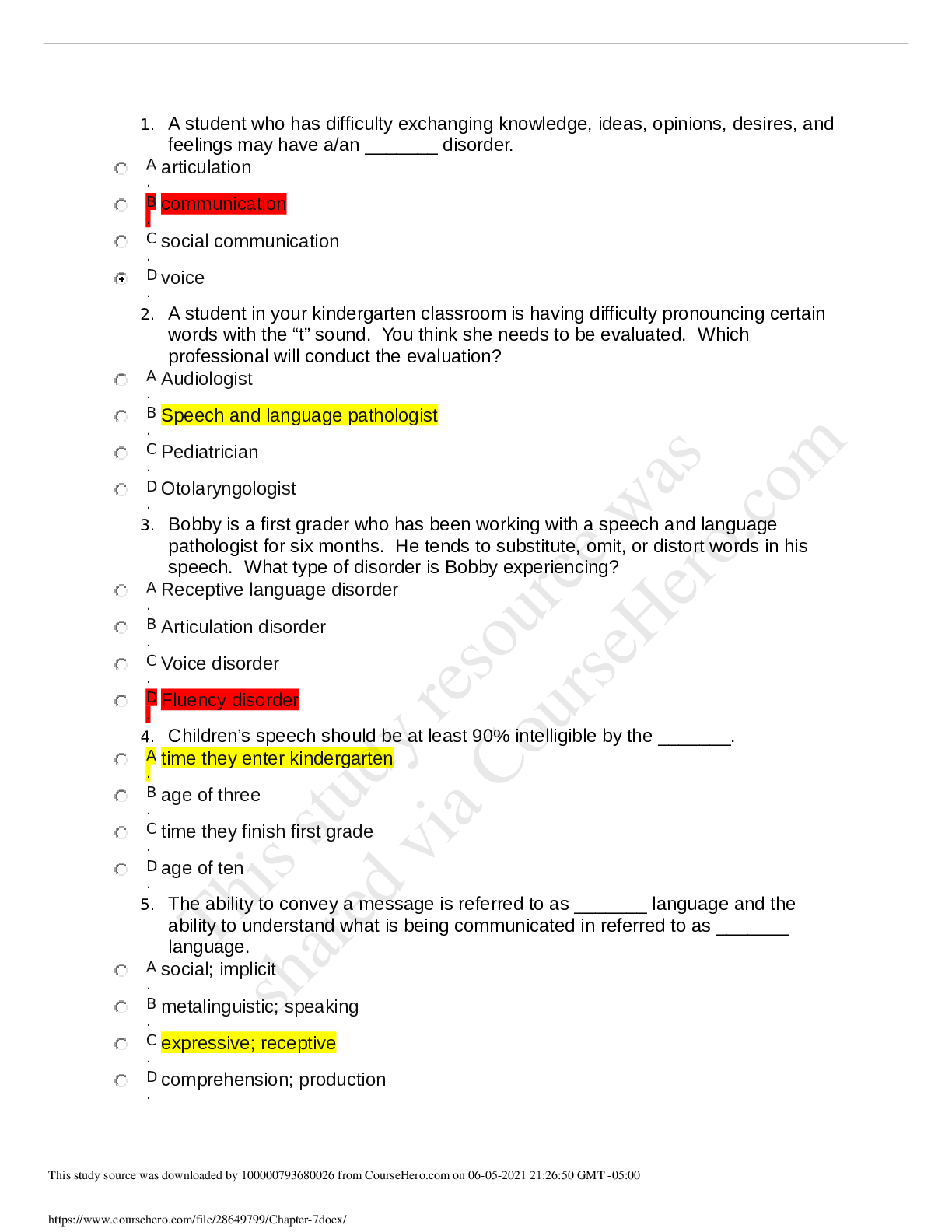
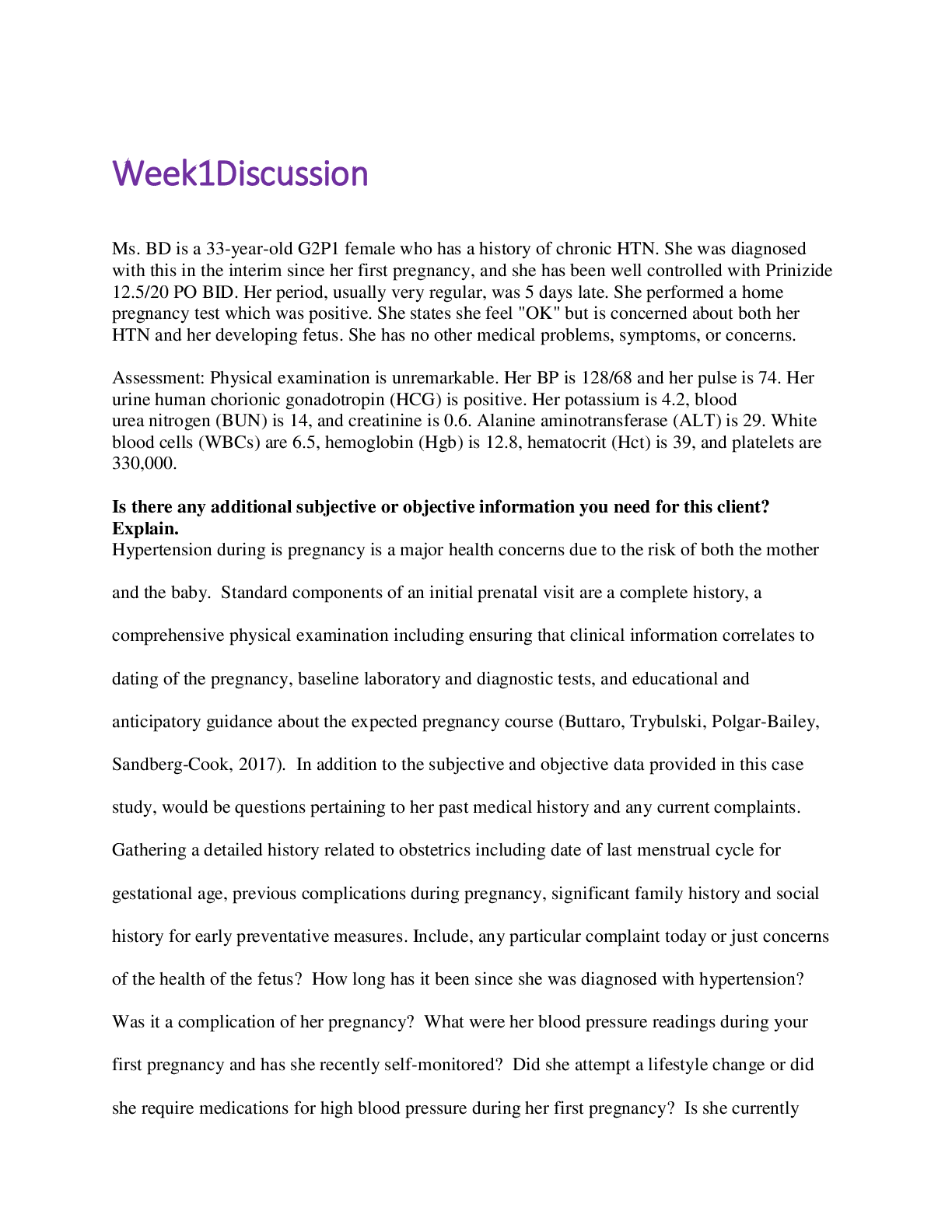


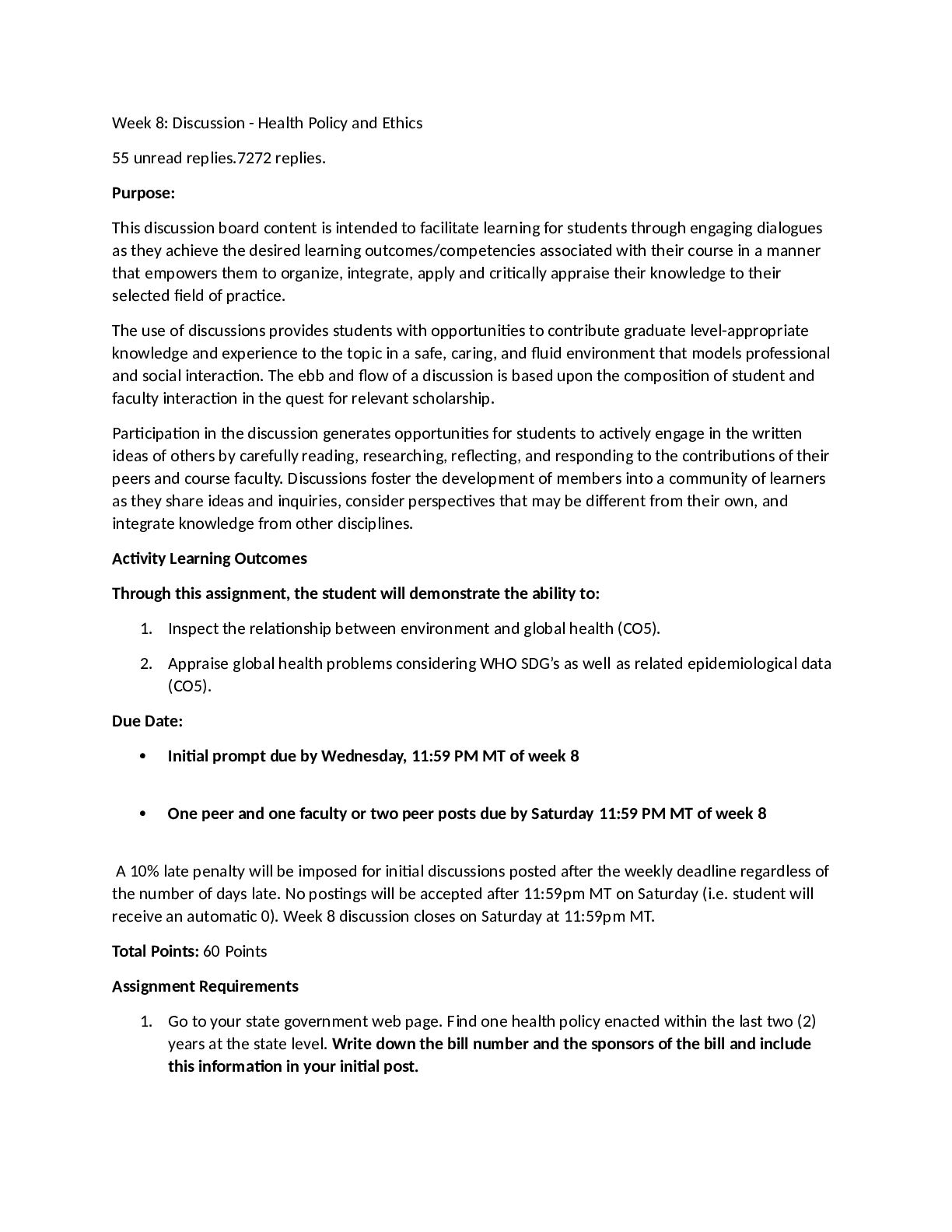



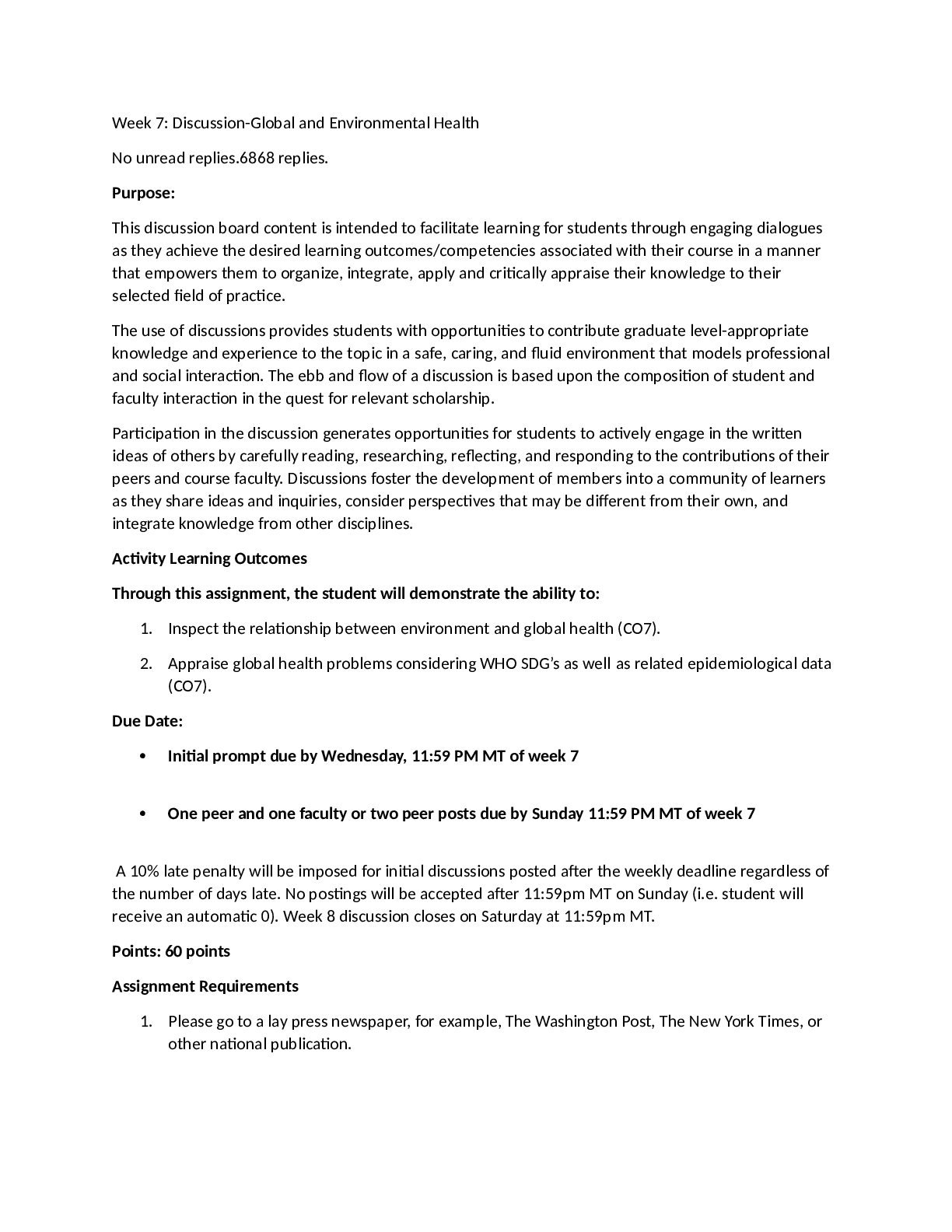

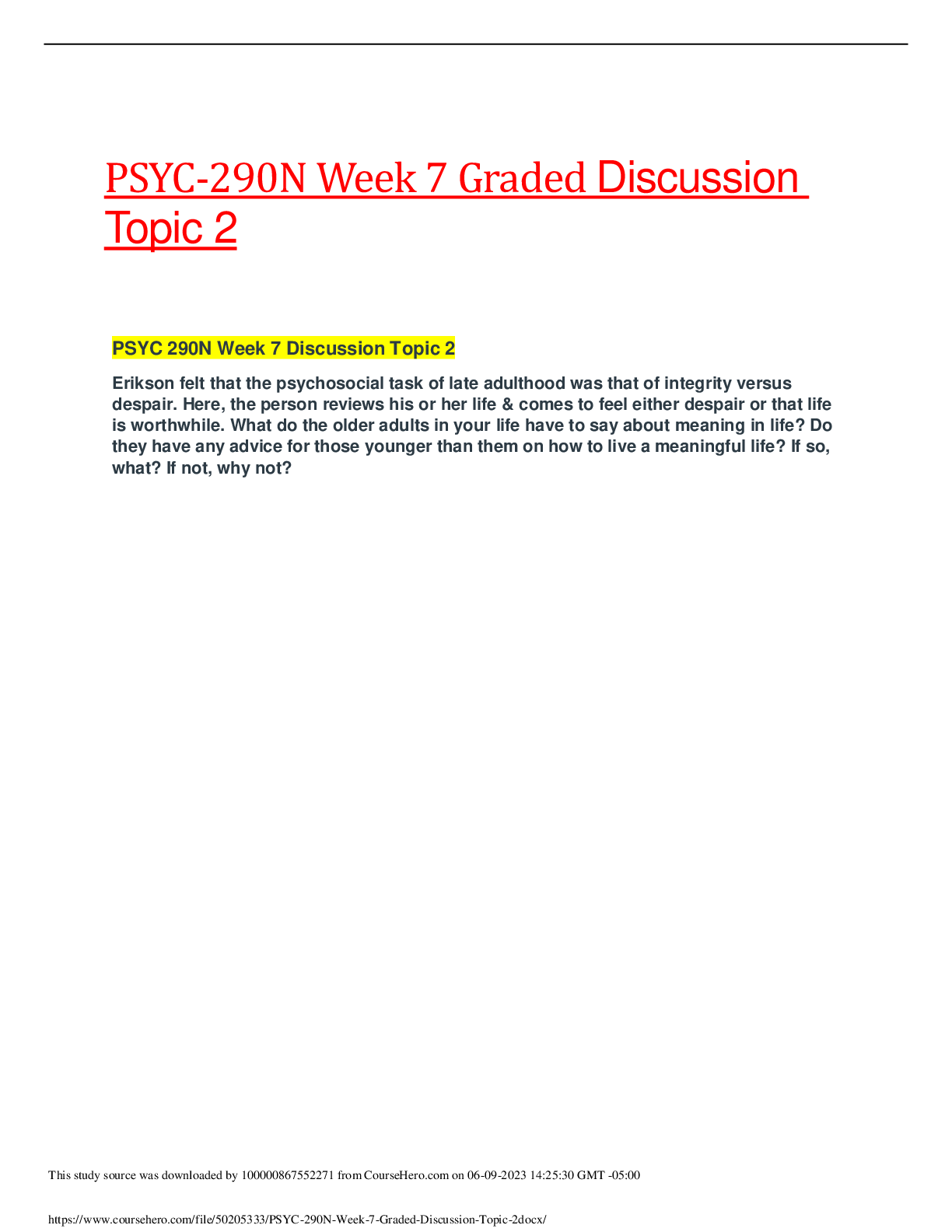
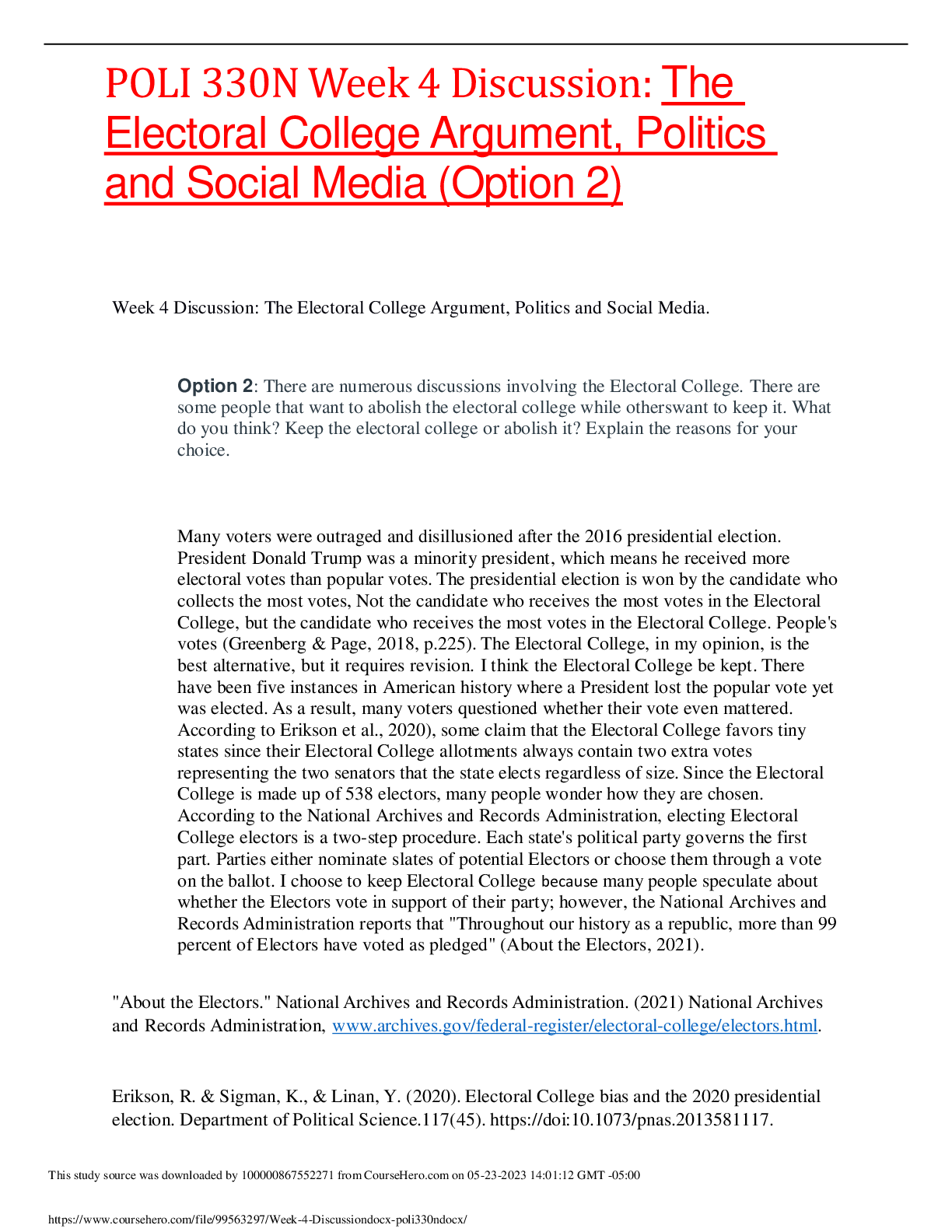

Growth and developmental patterns of toddlers.png)




